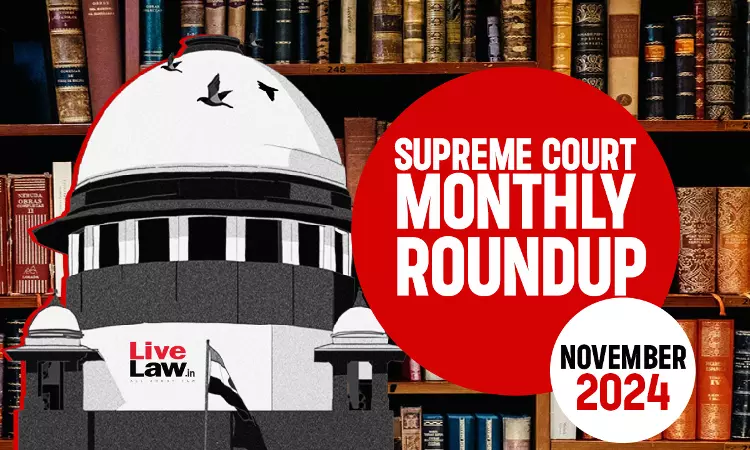Next Story
3 Dec 2024 10:45 AM IST
IndexCitationsManish Kumar Rai v. Union of India & Ors. 2024 LiveLaw (SC) 849Pintu Madanmohan Mondal v. State of West Bengal & Ors. 2024 LiveLaw (SC) 850Union of India v. Ganpati Dealcom Pvt Ltd | R.P.(C) No. 359/2023 2024 LiveLaw (SC) 851International Seaport Dredging Pvt Ltd v. Kamarajar Port Limited, Civil Appeal No 12097 of 2024 2024 LiveLaw (SC) 852Anoop M. and others v....

